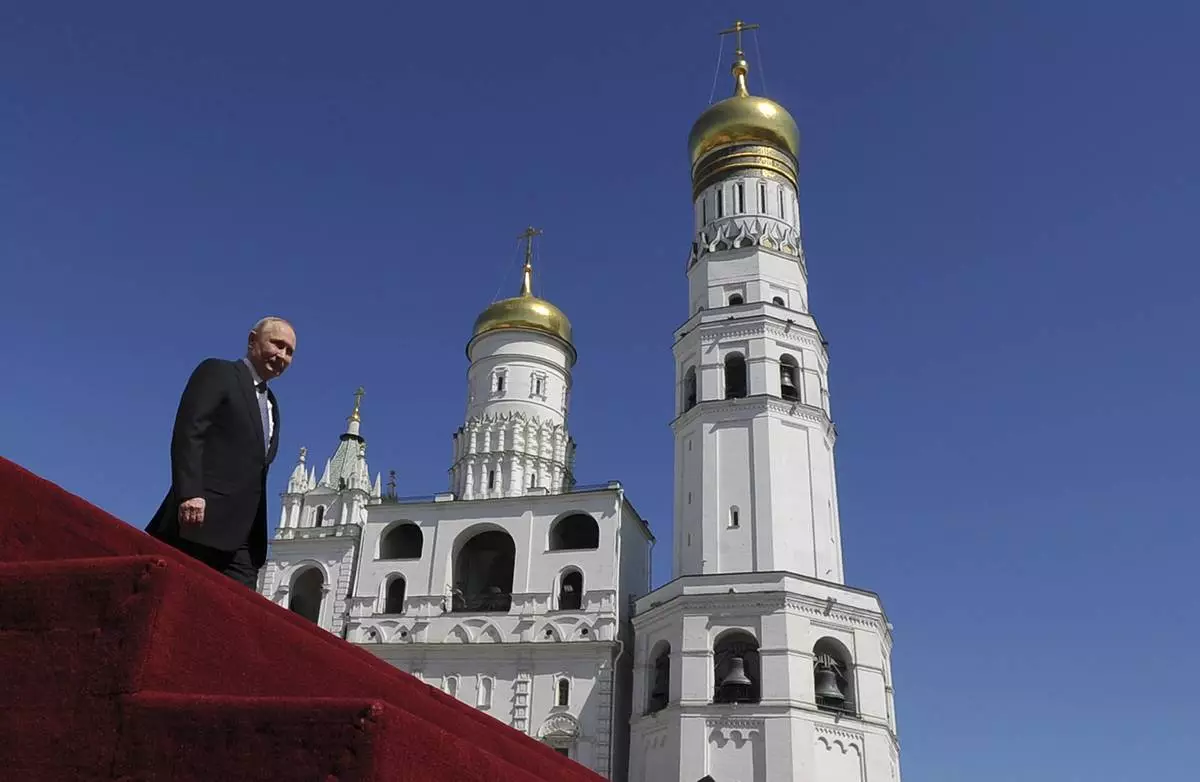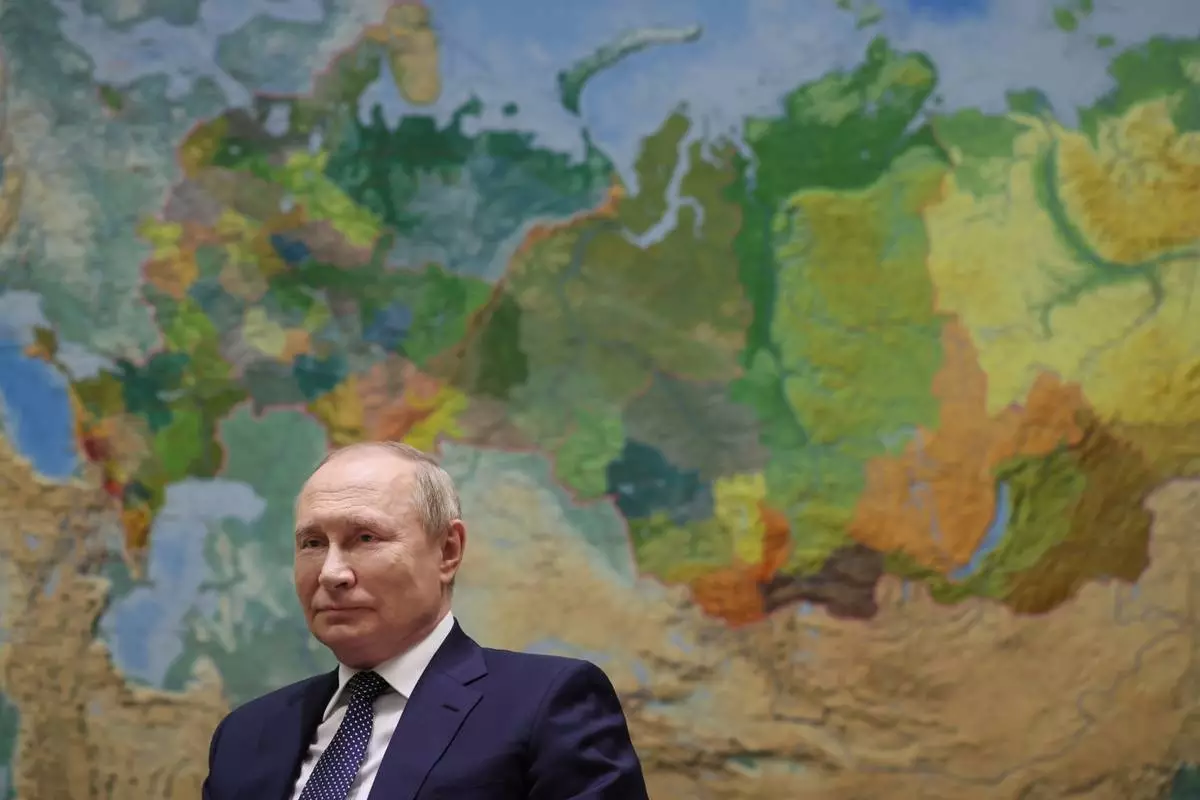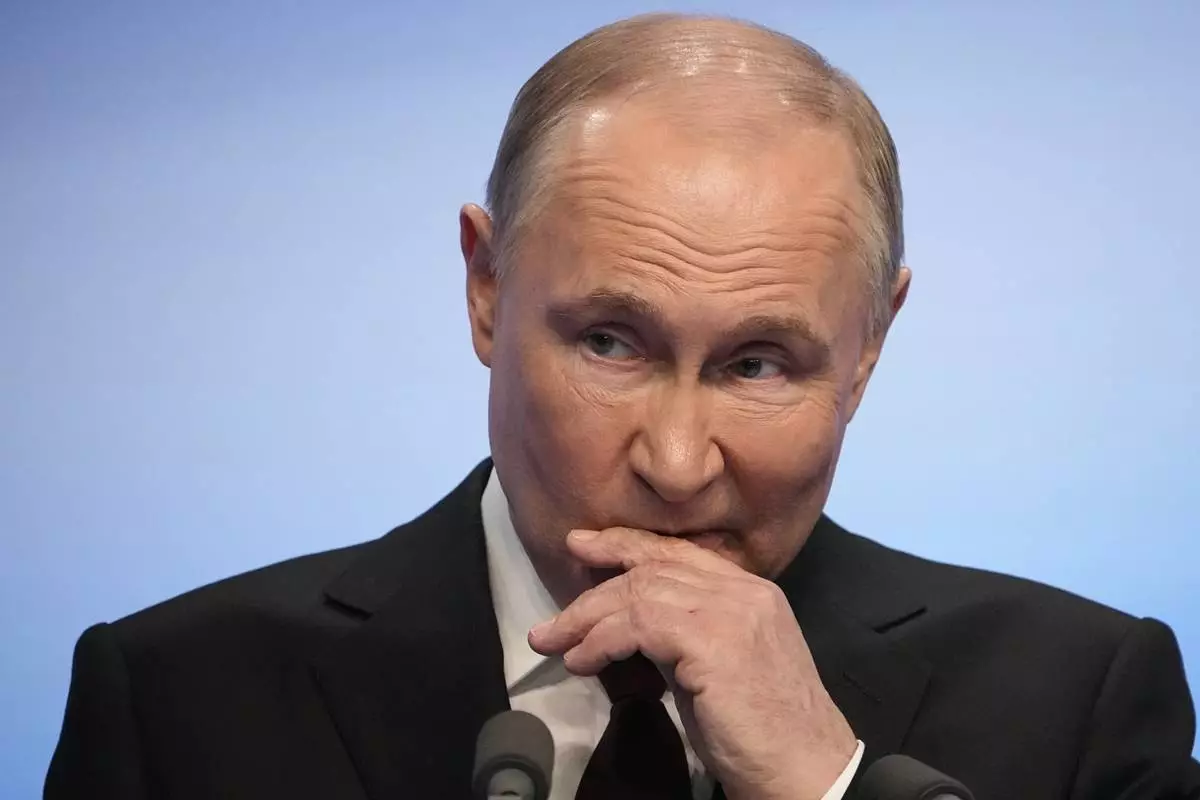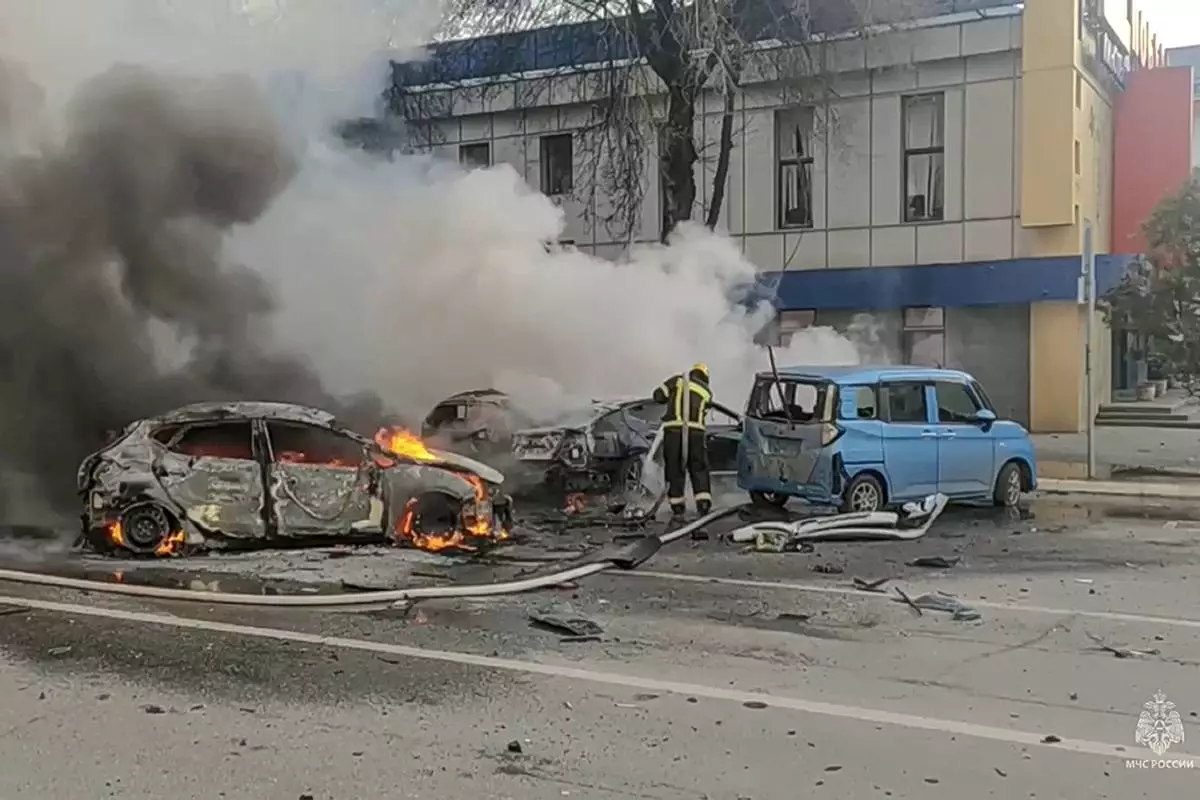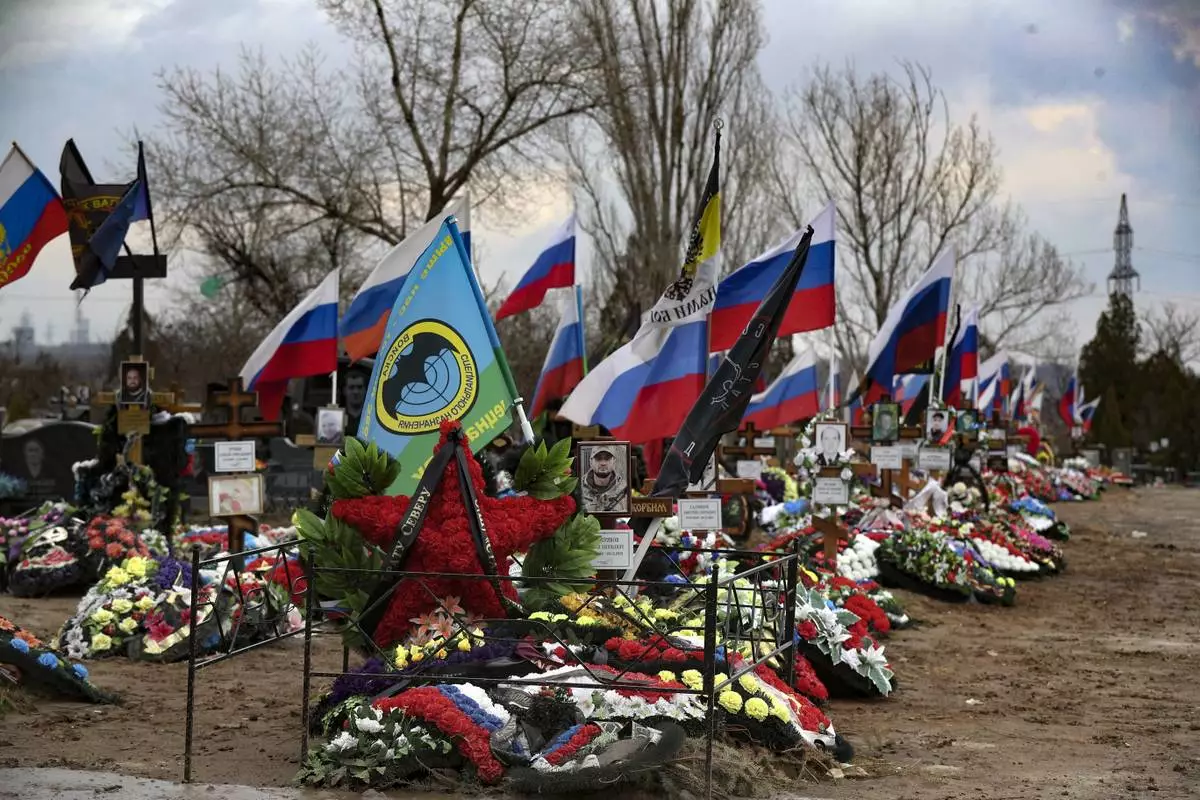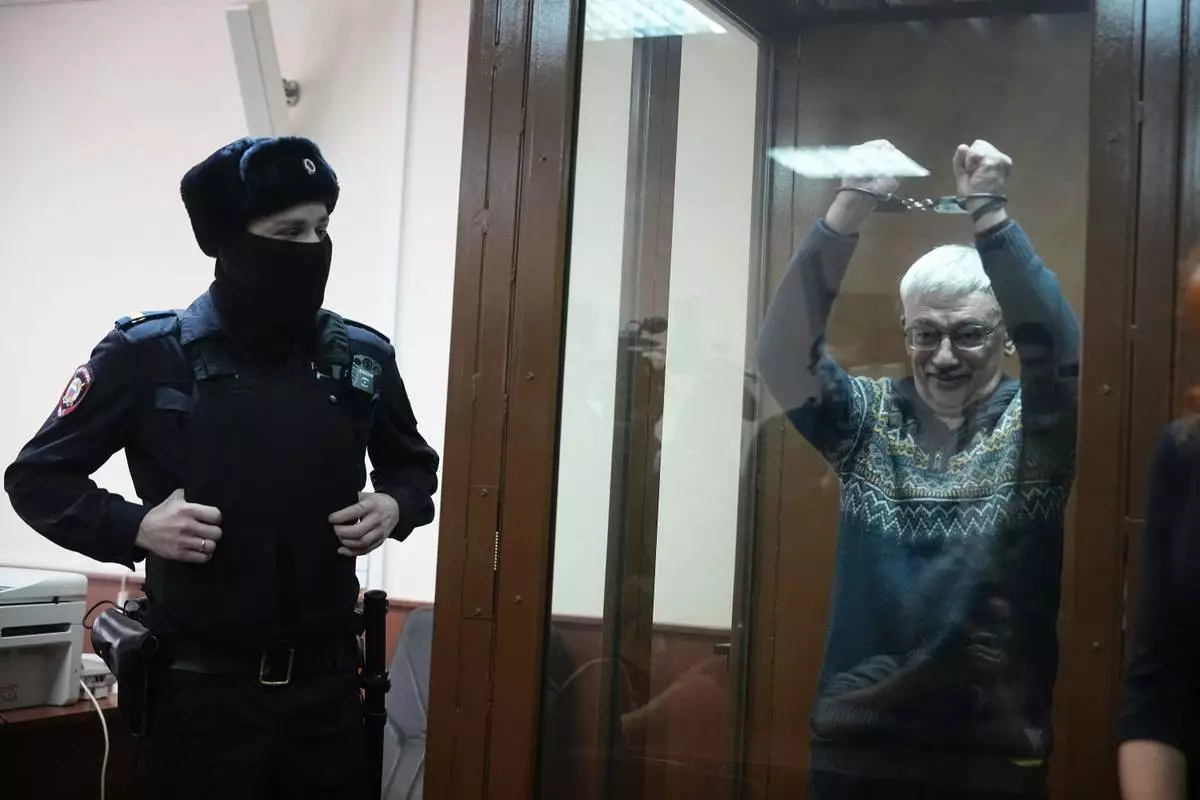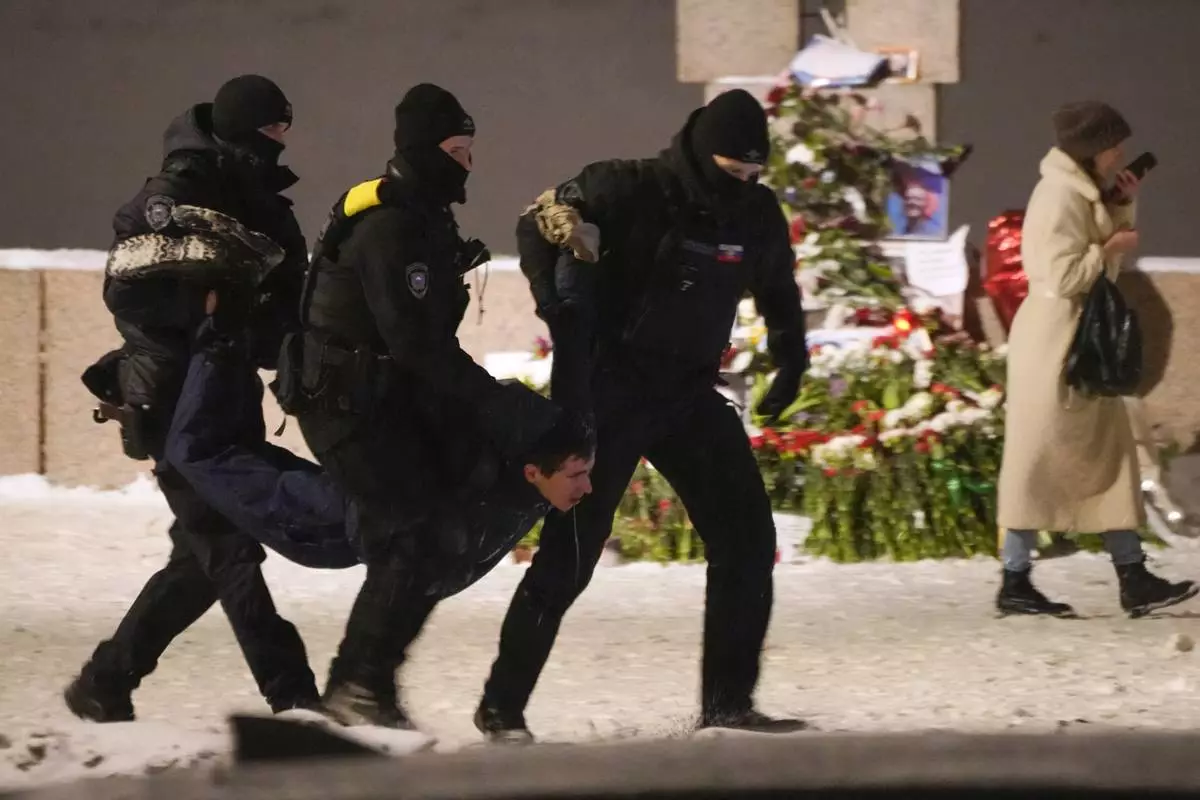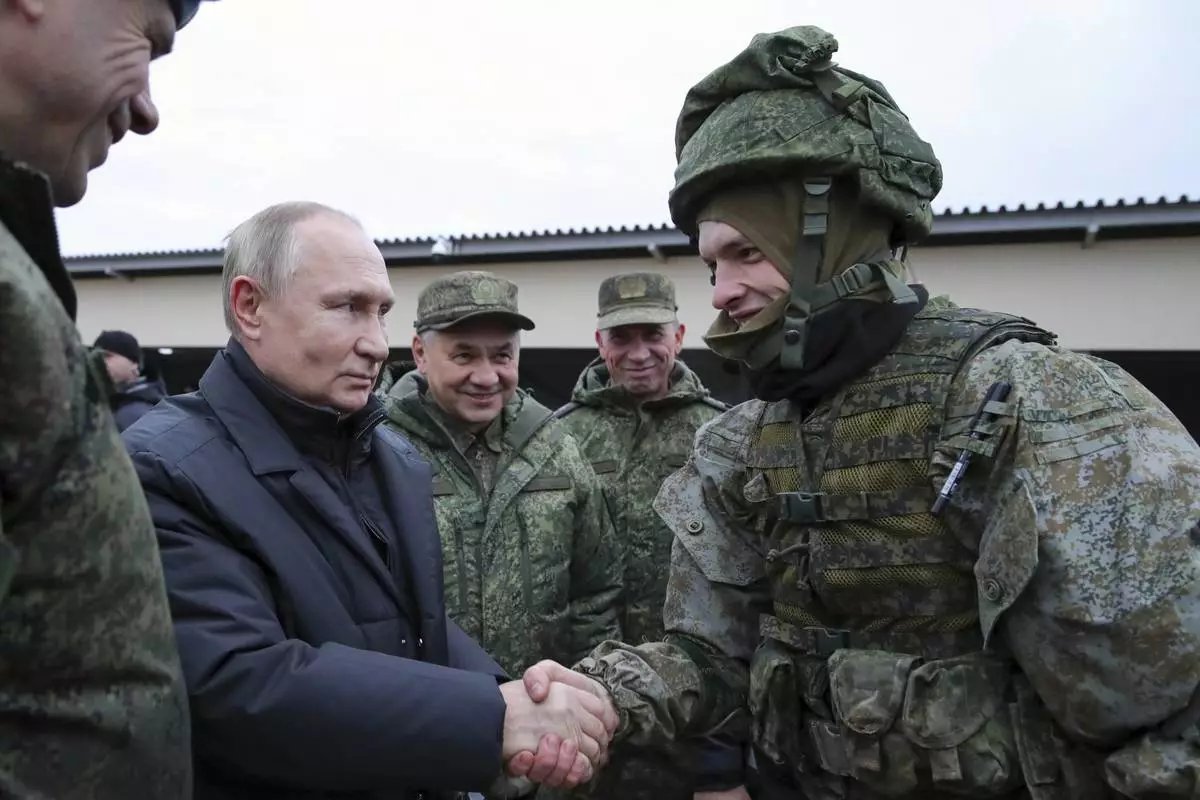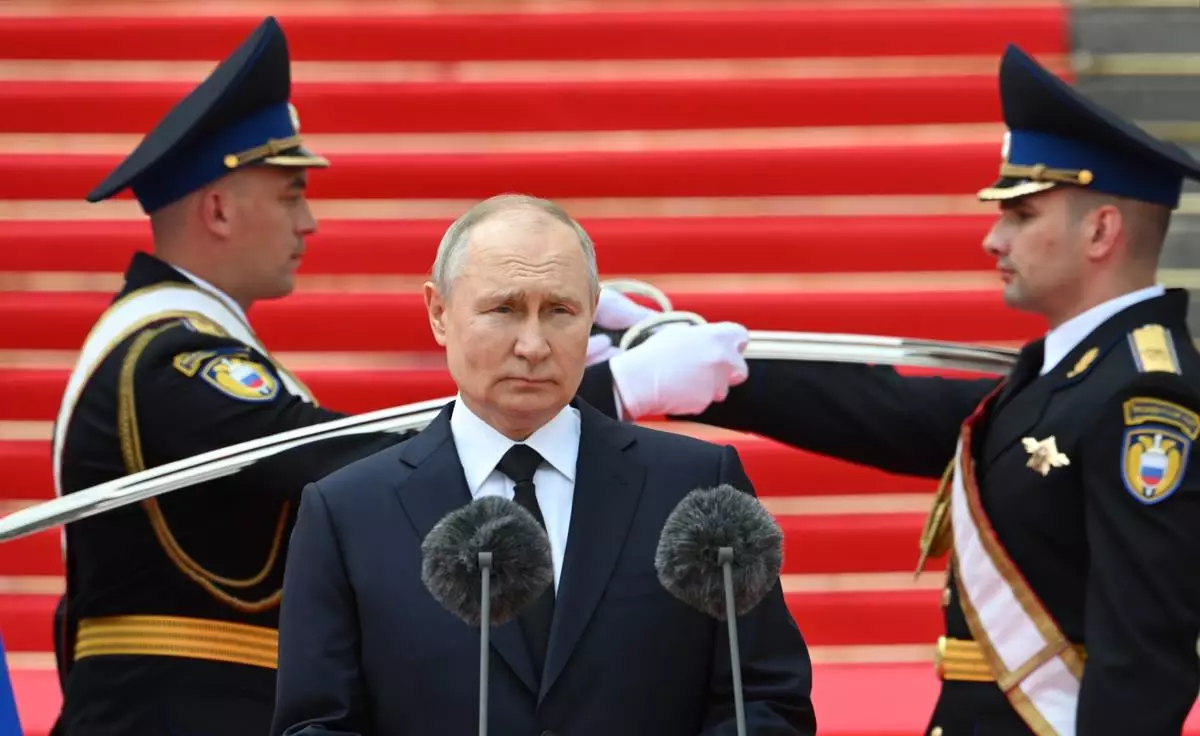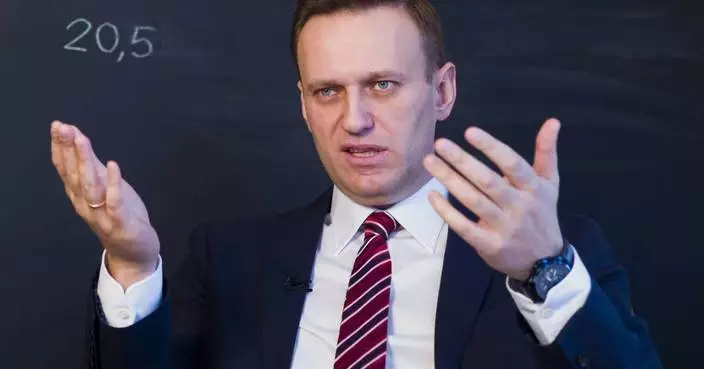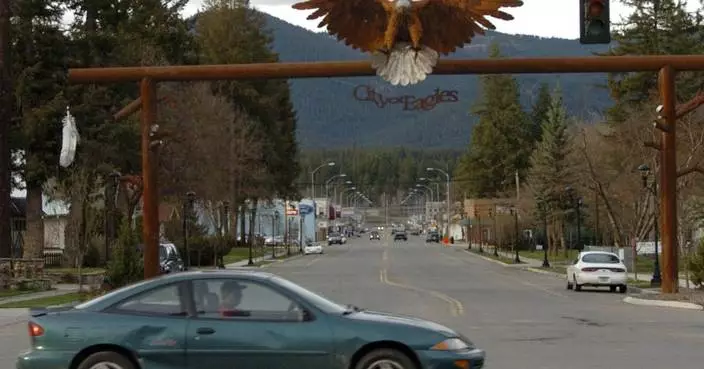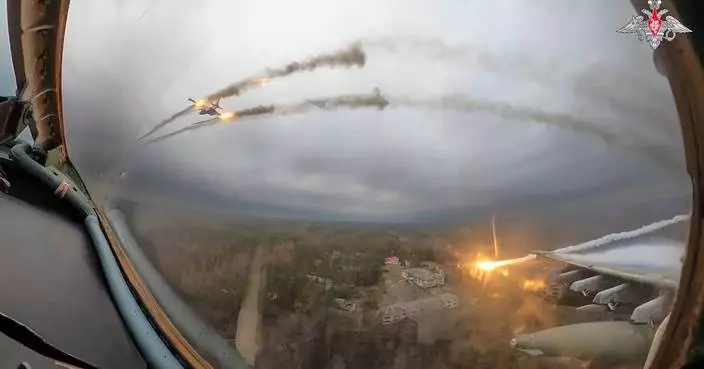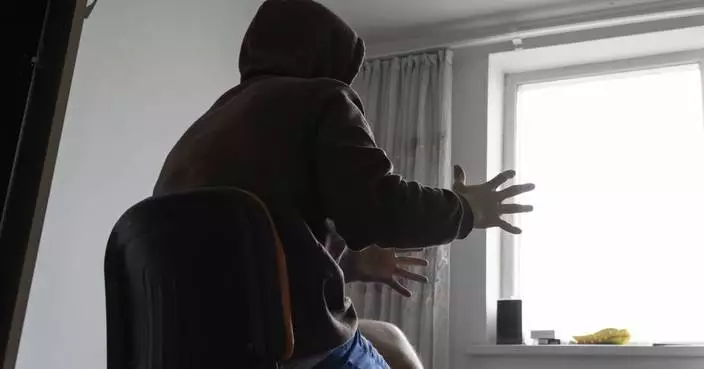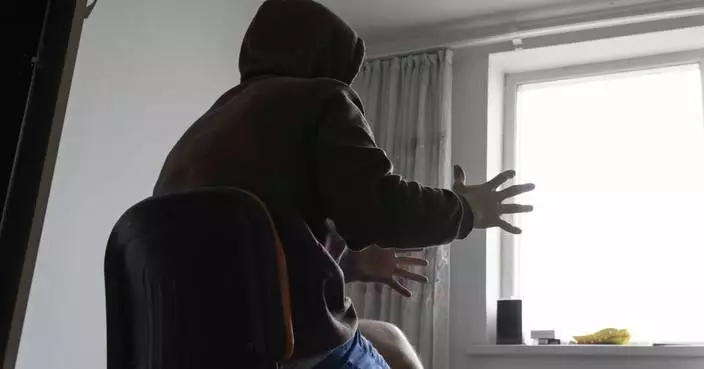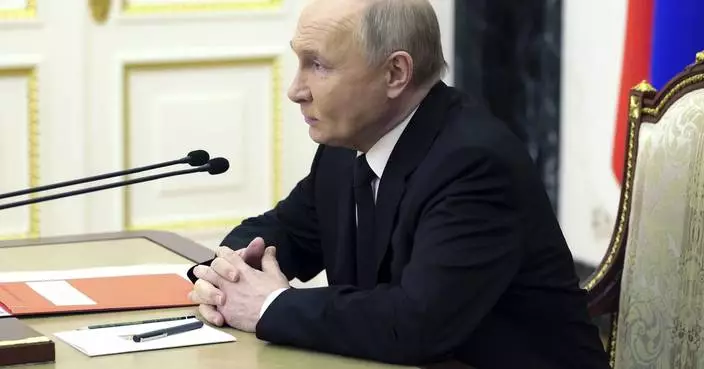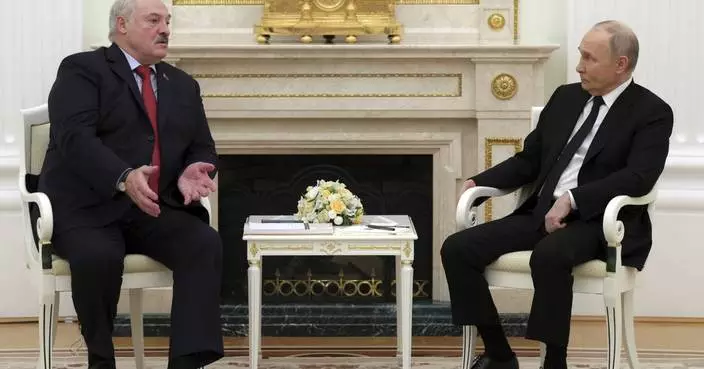Russia's presidential election campaign formally lasts only three months, and President Vladimir Putin wants to make it as short as possible.
With Putin's approval rating topping 80 percent, there is little doubt about the outcome of the March 18 vote.
Instead, voter apathy represents the main challenge for his strategists, who want his showing to be as strong as ever to demonstrate that public support for Putin hasn't waned 18 years after his first election.
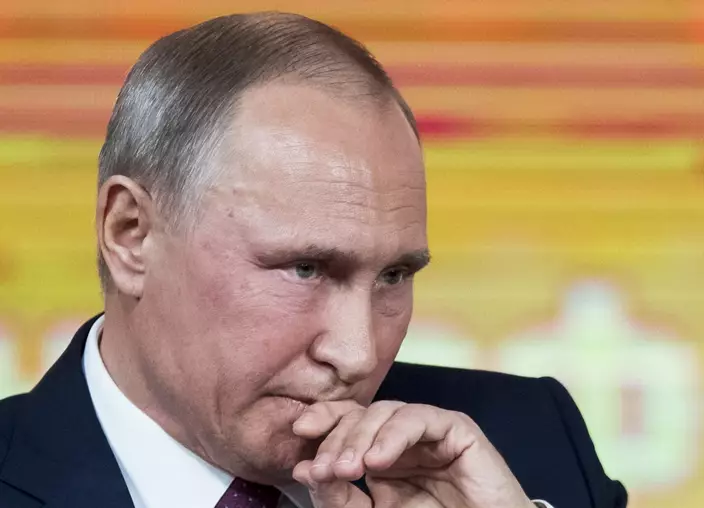
FILE - In this Thursday, Dec. 14, 2017 file photo, Russian President Vladimir Putin listens to a question during his annual news conference in Moscow, Russia. Russia. Russian lawmakers on Friday, Dec, 15 set the presidential election for March 18, a move that formally sets in motion campaigning for a race that Putin is all but certain to win. Voter apathy is the main challenge for Putin’s strategists, who want to make his result as strong as ever to prove that public support for the Russian leader hasn’t withered 18 years after his first election. (AP Photo/Pavel Golovkin, File)
In an apparent bid to drum up interest and make a bland race as short as possible to keep voters mobilized, the 65-year-old president waited until last week to declare his intent to run again.
It's not clear yet how Putin will focus his campaign, which was formally opened Friday by the upper house of parliament.
Ahead of the 2012 vote, he ran a highly polarizing campaign amid a wave of massive demonstrations in Moscow against his rule. He denounced middle-class protesters as spoiled stooges of the West and relied heavily on support from blue-collar workers and state employees.
Now, in the absence of major protests, Putin can afford to be more benign.
The 2014 annexation of Crimea from Ukraine bolstered his support, which has remained high despite a plunge in living standards under a combined blow of a drop in oil prices and Western sanctions.
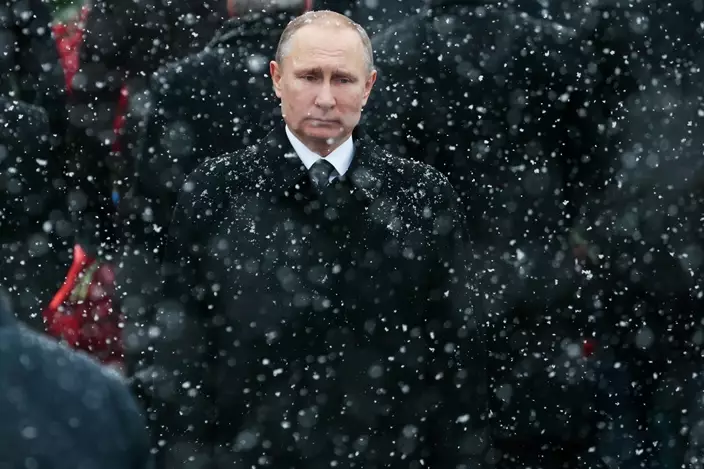
FILE - In this Thursday, Feb. 23, 2017 file photo, Russian President Vladimir Putin attends a wreath-laying ceremony at the Tomb of the Unknown Soldier in Moscow, Russia. Russian lawmakers on Friday, Dec, 15 set the presidential election for March 18, a move that formally sets in motion campaigning for a race that Putin is all but certain to win. Voter apathy is the main challenge for Putin’s strategists, who want to make his result as strong as ever to prove that public support for the Russian leader hasn’t withered 18 years after his first election (AP Photo/Ivan Sekretarev, file)
"Even very moderate people never really reconciled themselves after the end of the Soviet Union with Crimea being lost," said Moscow Carnegie Center director Dmitri Trenin. "They always thought it was unfair. And Putin had the guts ... to give it back to Russia without spilling a drop of blood."
Some pundits expected Putin to use Russia's ban from the Winter Olympics in South Korea to further fuel anti-Western sentiments by announcing a boycott of the games, and thus mobilize his base. Instead, he took a soft stance, encouraging Russia's athletes to compete under the Olympic flag.
His announcement of a partial troop pullout from Syria after a two-year campaign that secured Russia's position as a key power broker in the Middle East also plays well into his campaign.
"Putin has a broad backing across all social groups, which is linked to popular support for his foreign policy achievements," said Lev Gudkov, the head of the Levada-Center opinion survey agency, a leading independent pollster. "The propaganda has shaped his image as the national leader who has restored Russia's great power status."
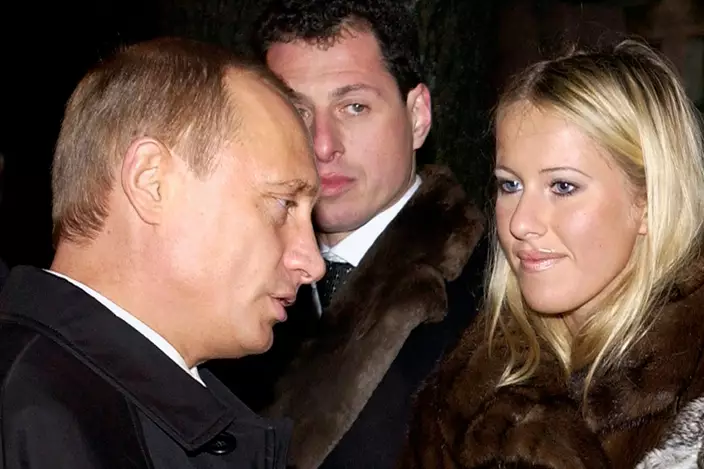
FILE - In this Saturday, Nov. 29, 2003 file photo, Russian President Vladimir Putin, left, speaks to Ksenia Sobchak, daughter of former St. Petersburg mayor Anatoly Sobchak at a cemetery in St. Petersburg, Russia. Russian lawmakers on Friday, Dec, 15 set the presidential election for March 18, a move that formally sets in motion campaigning for a race that Putin is all but certain to win. Voter apathy is the main challenge for Putin’s strategists, who want to make his result as strong as ever to prove that public support for the Russian leader hasn’t withered 18 years after his first election (Sputnik, Kremlin Pool Photo via AP, file)
Gudkov said polls show Putin's popularity is strongest in rural areas and small towns where most people rely on state-run TV for news. His broad support is rooted in a lack of real political competition, he said.
"The political field has been fully cleared," Gudkov said. "Putin completely dominates the information space."
Veterans of past elections — Communist chief Gennady Zyuganov, ultranationalist leader Vladimir Zhirinovsky and liberal Grigory Yavlinsky — all declared their intention to run. But the parties led by Zyuganov and Zhirinovsky represent only token opposition in parliament, voting consistently with the Kremlin line. Yavlinsky's party, which mostly relies on middle-aged liberal-minded urban voters, failed to make it to parliament in past elections.
In 2012, 65 percent of eligible voters turned out and Putin won nearly 64 percent. This time, the turnout is expected to be lower, Gudkov said.
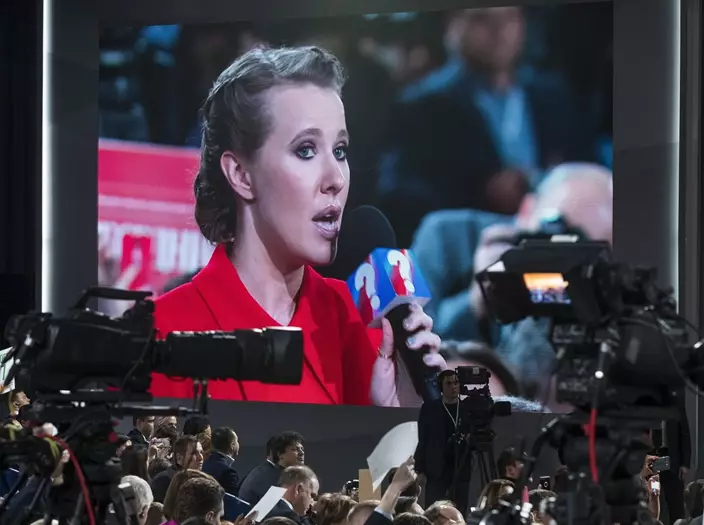
FILE - In this Thursday, Dec. 14, 2017 file photo, celebrity TV host Ksenia Sobchak, who wants to challenge Russian President Vladimir Putin in the March 18 presidential election, is seen at a big screen as she asks a question during Putin's annual news conference in Moscow, Russia. Russian lawmakers on Friday, Dec, 15 set the presidential election for March 18, a move that formally sets in motion campaigning for a race that Putin is all but certain to win. Voter apathy is the main challenge for Putin’s strategists, who want to make his result as strong as ever to prove that public support for the Russian leader hasn’t withered 18 years after his first election (AP Photo/Pavel Golovkin, File)
In the Urals city of Nizhny Tagil, which was dubbed "Putingrad" by some for its strong support of the president in the last election, members of the local branch of the Young Guard, a pro-Kremlin youth group, worry about voter apathy. They are campaigning to shore up his support.
"There is a great fight going on, not only for resources today, but also in terms of information," said its 18-year-old deputy chief, Dmitriy Ardy.
Charismatic anti-corruption crusader Alexei Navalny, who challenged Putin with a series of recent protests, is a fresh and widely recognized face that would provide an interesting opponent in the race, but the Kremlin does not want him on the ballot, fearing that would further expand his clout.
Putin mocked Navalny during the annual presidential news conference Thursday, casting him as a man who would plunge Russia into chaos. Navalny has been barred from running because of an embezzlement conviction, which the 41-year-old opposition leader calls politically motivated.
Enter Ksenia Sobchak, a celebrity TV host and socialite famous for her lavish lifestyle, sharp tongue and quick wit.
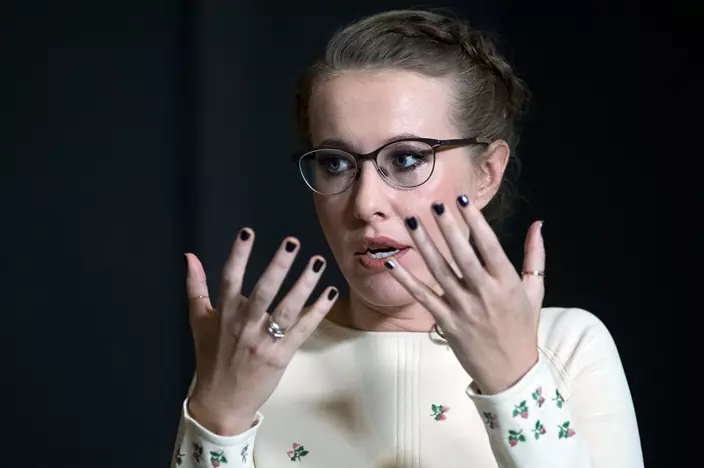
FILE - In this Friday, Nov. 17, 2017 file photo, Russian presidential hopeful Ksenia Sobchak speaks during a meeting in Moscow, Russia. Russian lawmakers on Friday, Dec, 15 set the presidential election for March 18, a move that formally sets in motion campaigning for a race that Putin is all but certain to win. Voter apathy is the main challenge for Putin’s strategists, who want to make his result as strong as ever to prove that public support for the Russian leader hasn’t withered 18 years after his first election (AP Photo/Pavel Golovkin, File)
Sobchak, the 36-year old daughter of the late mayor of St. Petersburg who was Putin's boss in the 1990s, has positioned herself as a candidate for those voters who detest the president and want change.
She denies colluding with the Kremlin, but her involvement provides a crucial element for the campaign: an eloquent Putin critic catering to disenchanted liberal-minded voters.
Sobchak denounced Russia's annexation of Crimea and insisted that the Black Sea peninsula belongs to Ukraine. She also said that Western sanctions against Russia were a legitimate punishment for Moscow's actions in Ukraine.
Her appearance on the top prime-time talk shows on state-controlled TV — something that could only happen with approval from the Kremlin — made it clear she has carte blanche to deliver sharp criticism.
Sobchak insists her key aim is to encourage public discussion of subjects branded as taboo by the state and give voice to the opposition.
But that could be exactly what the Kremlin wants — a dissenter who enlivens the race without posing a real threat to Putin.
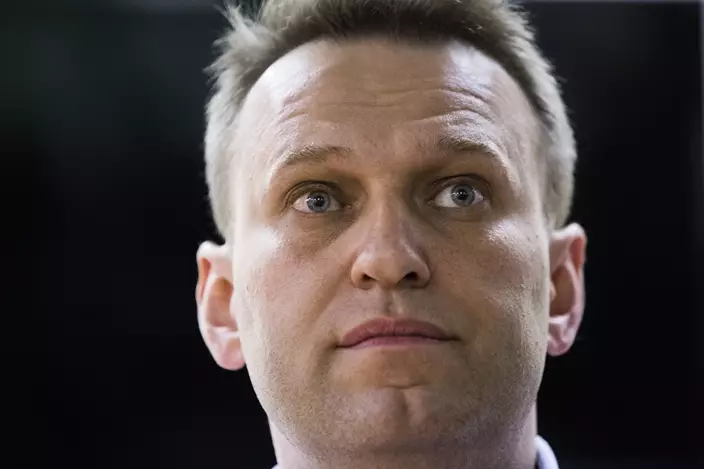
FILE - In this Tuesday, June 13, 2017 file photo, Russian opposition leader Alexei Navalny listens during a hearing in a court in Moscow, Russia. Russian lawmakers on Friday, Dec, 15 set the presidential election for March 18, a move that formally sets in motion campaigning for a race that Putin is all but certain to win. Voter apathy is the main challenge for Putin’s strategists, who want to make his result as strong as ever to prove that public support for the Russian leader hasn’t withered 18 years after his first election (AP Photo/Alexander Zemlianichenko, File)
With her star power, media savviness and energetic presence on social platforms, Sobchak has an appeal to young Russians who form the core of Navalny's supporters. At the same time, her snobbish, insolent style makes her a strong irritant for blue-collar workers, helping mobilize Putin's base.
From the Kremlin's perspective, Sobchak's participation has an added value of further splitting and weakening the ranks of Putin's foes.
While many in the opposition camp accused Sobchak of playing into Putin's hands, she probably will attract those who resent Navalny's calls for defying the government with unauthorized protests and prefer more moderate ways of expressing dissent.
Wearing a bright red dress, Sobchak boldly challenged Putin at his news conference, arguing that the refusal to let Navalny run reflects the Kremlin's fear of the opposition. It was an appearance that was certain to expand her base of support.
"She will draw Navalny's supporters to her side," Gudkov said. "As people realize that Navalny will not be allowed to enter the race under any circumstances, she will take that niche."
In Nizhny Tagil, home to a factory making military tanks, Andrey Artyugin already has signed up as a volunteer for Sobchak. The 38-year-old engineer said he initially supported Navalny but lost trust in the opposition leader after sensing "some falsity" in him.
Navalny has warned that he would strike back at Putin by staging a campaign for boycotting the vote — an effort that may hurt Kremlin efforts to boost the turnout.
"Our task would be to run a very active campaign to convince everyone that they shouldn't turn out," Navalny said on his YouTube channel, calling on his followers to get ready for an "electoral strike."
He relies on a grass-roots network of supporters in more than 80 cities to deliver the message.
"A chance is really small that he will be allowed to run in the election, but people fight for this," said 18-year-old Sergey Antoshchenko, a Navalny campaigner in Nizhny Tagil.



